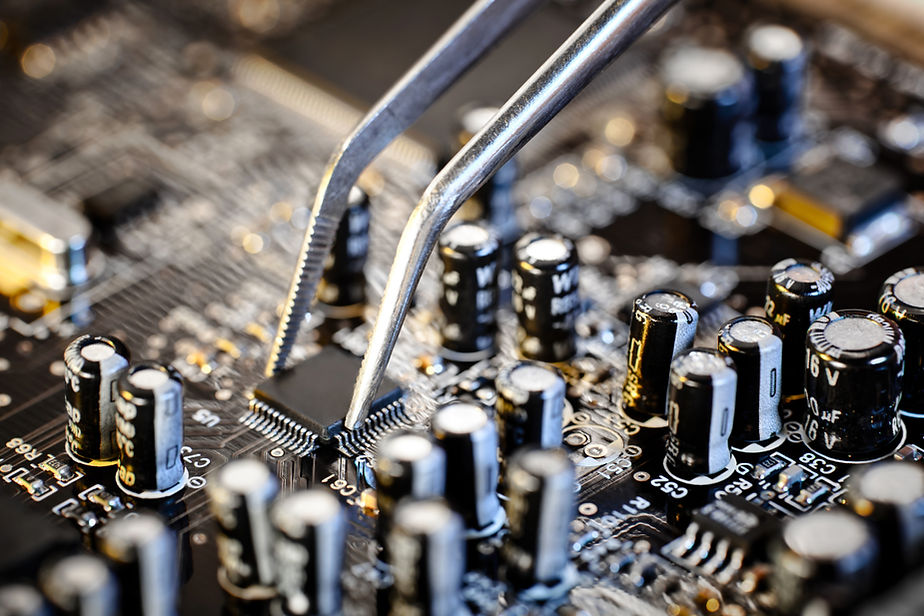Navigating the 5 Common Computer Problems and Knowing When Professional Help is Essential
- stevebrewer5
- Jul 27, 2025
- 4 min read
In today's digital world, our computers have become essential tools for both work and relaxation. They help us connect with others, access information, and complete tasks efficiently. However, these machines can sometimes run into problems that slow us down and cause frustration. Understanding these common issues helps you take initial action, but it's equally important to know when to seek professional help. This ensures your device remains functional and efficient.
Below are five common computer problems, complete with practical advice on when to call for technical assistance.
1. Slow Performance
One of the most common complaints among users is slow performance. Symptoms include prolonged startup times, sluggish applications, and delayed response to clicks. Causes can include insufficient RAM, outdated software, or too many background processes.
If your computer feels sluggish, try these strategies:
Close unnecessary programs: Operating multiple applications at once can consume significant system resources. For instance, if you have multiple browser tabs, try closing those that you are not actively using. You might be surprised at how quickly your computer responds after reducing the load.
Clear cache and temporary files: Over time, accumulating files can slow down your computer. You can use built-in tools like Disk Cleanup on Windows or third-party applications like CCleaner to remove unwanted files regularly.
Upgrade hardware: If you routinely find yourself running out of memory, consider upgrading your RAM. For example, moving from 4GB to 8GB of RAM can improve performance by up to 50% in many applications.
If these steps don’t improve performance, it may be time to consult a professional. They can identify underlying hardware issues or suggest tailored upgrades.

2. Frequent Crashes
Experiencing frequent crashes or freezes can indicate serious problems. Causes might include software conflicts, corrupted files, or failing hardware.
To address these issues, consider:
Check for updates: Ensure your operating system and all applications are up-to-date. For instance, many issues can be resolved by installing the latest Windows updates, which often contain bug fixes and stability improvements.
Run a virus scan: Malware can cause severe system instability. Running a scan with trusted antivirus software is a good safeguard. Statistics show that about 30% of crashes can be traced to malware infections.
Inspect hardware components: Hardware malfunctions, such as loose cables or a failing hard drive, may cause crashes. Open your computer and check connections when it's safe to do so.
If crashes continue despite your efforts, it’s a good idea to seek professional assistance. Technicians can conduct a thorough diagnosis and identify issues that might escape your notice.
3. Overheating
Overheating can lead to performance issues and even hardware failure. Computers generate heat, and without proper ventilation, they can suffer serious damage.
When your device becomes excessively warm, consider:
Clean the vents: Dirt and dust can block airflow. Regularly cleaning the vents with compressed air can improve ventilation significantly.
Use a cooling pad: For laptops, a cooling pad can help dissipate heat more effectively, particularly if you frequently engage in high-performance tasks like gaming. These pads can reduce temperatures by up to 10 degrees Celsius.
Limit heavy tasks: If overheating occurs during tasks like video editing, consider spreading these activities out or taking breaks to allow your device to cool down.
If overheating remains a problem, consult a technician. They can provide solutions like replacing thermal paste or repairing fans, which can extend the life of your computer.

4. Connectivity Issues
Network problems, whether slow internet speeds or failure to connect, can be frustrating. These may result from malfunctioning hardware, outdated drivers, or interference.
To troubleshoot connectivity challenges, try:
Restart your router: This simple action can often fix temporary issues. Studies show that 60% of connectivity problems can be resolved this way.
Check network settings: Ensure your computer’s network settings are correct. Sometimes, accidental changes can disrupt your connection.
Update network drivers: Outdated drivers can lead to poor connection quality. Regularly checking for updates from your hardware manufacturer is wise.
If these steps do not resolve connectivity issues, it’s prudent to reach out for professional help. A technician can better identify the root causes and assist with complex networking configurations.
5. Software Errors
Software errors can range from small bugs to system failures. They may arise from incomplete updates, compatibility issues, or malware infections.
To address software problems, consider:
System restore: Use the system restore function to revert to a previous state before errors began. This tool can resolve a variety of issues quickly.
Reinstall the software: If a specific program causes issues, uninstalling and then reinstalling it can often fix compatibility problems.
Consult documentation: Sometimes, solutions can be found in user guides or forums where others discuss similar errors.
If problems persist, consulting a professional technician might be necessary. They can help troubleshoot more profound issues, uninstall corrupted software, and perform clean installations when needed.
Final Thoughts
While many computer problems can be solved at home, some situations require professional expertise. Knowing when to seek help can save you time and money on repairs.
Whether you face performance lag, frequent crashes, overheating, connectivity issues, or software errors, accurately assess the situation. If you're ever in doubt, consulting a technician can offer peace of mind and effective solutions.
By staying informed about these common computer issues, you can take proactive actions to manage them while also knowing when to call for expert help. This approach ensures your computer remains a reliable tool for years to come. Treat your device well, and it will continue to serve you efficiently.




Comments